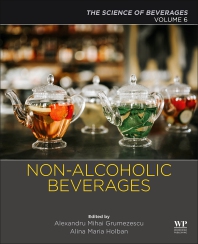Influencer partnerships provide value to brand owners
Consumers trust in influencers outweighs sponsor labels

When it comes to marketing budgets, brand owners have no shortage of options from which to choose of where to direct their expenditures. As digital marketing continues to command a greater piece of the pie, partnerships with influencers is gaining more attention. Although influencer partnerships are becoming more commonplace for brand owners, some still question the effectiveness of this medium.
An article on socialmediatoday.com titled “What I Learned from Surveying Over 400 Influencers” addresses some of the biggest questions that brand owners might have surrounding this marketing platform. Author Kristen Matthews tackled one of the biggest concerns when it comes to utilizing influencers, which is posts labeled as “ad” or “sponsored.”
Because Federal Trade Commission regulations require this label, there is not much wiggle room when it comes to this; however, credibility of the online sponsored label might concern some brand owners. Yet, it looks like these concerns can be put to bed.
“Ninety-five percent of the influencers in the survey reported that they think their audience still trusts their brand recommendation, even when in a post marked as sponsored,” the article states.
Matthews provided her assessment as to why this might be true. “My theory behind this is that consumers understand that an influencer needs a way to make a living in order to keep posting the awesome content that they love,” she wrote. “Most consumers trust that the influencers they follow only talk about products that they genuinely like, as opposed to talking up whatever company that pays them.
“The whole reason that influencer marketing works in the first place revolves around trust in said influencer,” Matthews continued. “Brands need to trust influencers to create content that resonates with their followers, and followers trust influencers to only promote brands they sincerely stand behind.”
In a Beverage Industry Sip & Learn podcast episode from Sept. 12, Mark Zablow, founder and chief executive officer of Cogent Entertainment, highlighted how the company has integrated influencers as part of the marketing conversation for its clientele and the value that it brings them.
“Influencers to us were always a trusted resource,” he stated. “What better recommendation is one from a friend? We always looked at influencers when we started our company in 2011, really when there wasn’t so much of a social media effect. Who brings the cool factor, who brings the noticeability to what we’re doing? How does that push us over the edge?
“Today, we’ve seen the way that influencers have evolved from your big power influencers to your nano influencers and we’re talking about how their numbers can affect people, the amount of likes can affect people, obviously influencer fraud is a massive conversation,” Zablow continued. “Again, we go back to the basics of the tried and true approach. Influencers should be treated as concentrators as people who bring authenticity or bring [the] cool factor into a brand. Bring a little awareness.”
As beverage manufacturers look to connect with Generation Z and millennial consumers, it seems as though influencer partnerships should be part of their marketing playbook going forward.
Looking for a reprint of this article?
From high-res PDFs to custom plaques, order your copy today!









